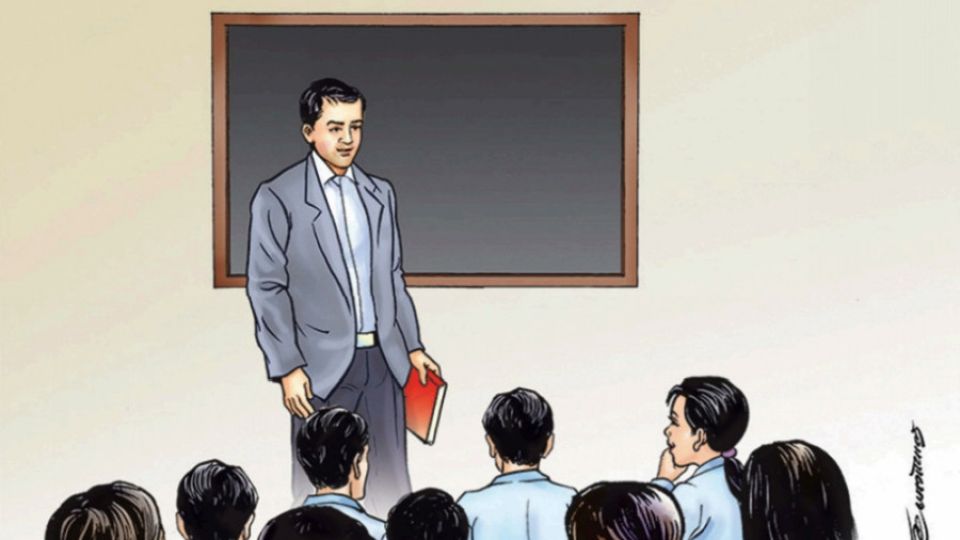April 18, 2024
KATHMANDU – The Ministry of Education, Science and Technology is expediting homework to take action against teachers, professors and staff involved in partisan politics.
Following complaints that hundreds of employees under the ministry are in political activities, the ministry is working to identify such individuals. Although it is illegal for government employees to be members of any political party, a large number of school teachers and university professors along with other staff are involved in partisan politics.
On Tuesday, Sumana Shrestha, education minister, consulted Chief Election Commissioner Dinesh Thapaliya to seek the commission’s support in its effort. “There is no dispute that partisan politics in the education sector must be eliminated. We are coordinating with the Election Commission to collect evidence before taking action against such employees,” Shrestha was quoted as saying in a statement issued by her secretariat.
The ministry is taking the initiative based on the existing law, court orders and international practice, according to the statement.
Thapaliya, in the meeting, said the commission had already taken an initiative to this effect.
“It is illegal for the teachers, professors or any government employee to be involved in politics,” said Thapaliya. “I assured the minister of any support in this regard although I had visited the ministry to discuss some other issues.” Talking to the Post, Thapaliya said the participation of teachers, professors and other government employees is against the Political Parties Act, 2017.
Similarly, Patan High Court on October 5, 2021, had ordered that school teachers cannot engage in active politics. Responding to a writ petition, the court said those drawing salaries and benefits from the state coffers should not be involved in partisan politics. Following the order, the commission on November 23, 2021 had issued a directive warning of action if the law and the court orders were not followed.
The ruling was issued to stop school teachers from contesting in different levels of elections of the Nepali Congress and the CPN-UML in the run-up to the parties’ conventions.
In the following December, the Centre for Education and Human Resource Development, under the ministry had asked all local governments and education units at the district level to implement the ruling.
However, the court’s ruling and the warning from the commission and the centre didn’t stop the teachers, professors and other staff from taking part in the party’s general convention.
As many as 263, among 4,743 representatives in the Nepali Congress general convention held in December 2021 were school teachers and staff. The number is above five percent of the total delegates.
The main opposition UML also had dozens of teachers as representatives in the party’s 10th general congress held in November same year.
The Election Commission time and often has been making some efforts for the action against government employees involved in partisan politics.
Following complaints that Tribhuvan University teachers are involved in party politics, the Election Commission in May last sought clarification from the TU administration.
One complaint said Yubraj Poudel, coordinator of the Nepal Samajabadi Morcha, was an associate professor at the Central Department of Management. It also said Jagat Timilsina, Rajendra Gautam and Krishna Kant Parajuli, who are associate professors, were leaders of the Nepali Congress-affiliated Democratic Professors Association.
The commission had asked whether the teachers at the university were involved in party politics and if yes why they were allowed to do so. The constitutional commission had also written to the respective parties asking whether they had assigned any responsibility of the party to the lecturers, associate professors and professors.
However, no action was taken against them as both the university and the political parties dismissed the allegation. “We got a response that they had quit party responsibilities. Thus no action was taken,” said Thapaliya.


